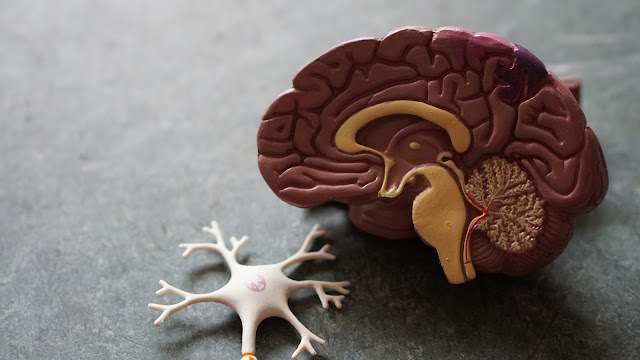 |
| Photo by Robina Weermeijer on Unsplash |
Asthma is a condition in which a person’s airways become narrow, inflamed, and swell and generate extra mucus, making it difficult for him to breathe. This is a common disease. Globally, 300 million people are estimated to be currently affected by this disease. Interestingly, a recent study conducted at the Washington University School of Medicine found that people with asthma are less prone to developing brain tumors.
What Have Scientists Found?
T-cells are a part of the immune system that originate from stem cells in the bone marrow. Usually, these cells protect the body from infections but one can also find them in action when a person develops asthma. In the study, scientists found that asthma forces the T-cells to behave in a manner that causes lung inflammation but halts the growth of brain tumors.
The study available in Nature Communications proposed that reprogramming or altering T-cells in brain tumor patients could be a new way to treat them.
“Of course, we are not going to start causing asthma in people, as it can be a fatal disease. But what if we could fool the T-cells to think that they are asthma cells when they enter the brain, so they don’t support the tumor formation and expansion? These findings are a gateway to new therapies targeting T-cells and their relations with brain cells,” said senior author David H. Gutmann, Professor of Neurology at Washinton University.
Previous studies have shown the functions of immune cells in evolving optic gliomas (low-grade primary tumors that occur in the optic nerve, chiasm, or both). A chiasm is a point of intersection where the optic nerve and brain meet. These studies excited Gutmann who was keen to find out the connection between brain tumors and asthma.
How Did They Find This Connection?
Jit Chatterjee, a postdoctoral researcher and the first author of the study said “Asthma reduces glioma formation by T-cell decorin-mediated inhibition of microglia.” He and his team experimented in mice that were genetically engineered to carry a transformation in their NF1 genes (a gene that controls cell growth) and form the optic glioma pathway from three months of age.
In the experiment, the group of mice was exposed to asthma-inducing irritants at the age of 4 to 6 weeks. Scientists treated a separate group of genetically modified mice with saltwater for comparison. Thereupon, they looked for the optic glioma pathway formation in the mice at 3 and 6 months of age. Brain tumors were not formed in the mice with asthma.
They found that inducing asthma in the mice changed the behavior of the T-cells in the tumor-prone mice. Their T-cells started secreting a protein called decorin. This protein is a major cause of blocking the airways and exhibiting the symptoms of asthma, however, it is useful in preventing tumors in the brain.
The protein acts on Microglia (immune cells in the brain) and blocks its functioning by hindering a protein complex called NFkappaB. The protein complex controls the formation of RNA from DNA, an important step in microglia activation. Activated microglia is responsible for tumor growth and development.
Treatment with caffeic acid phenethyl ester (CAPE- the chemical that prohibits activation of NFkappaB pathway) or decorin prevented mice from developing optic glioma pathways. The results showed that blocking the microglial activation may be a useful therapeutic way to treat brain tumors.
Conclusion
According to Gutmann, the exciting part of the experiment was knowing the relationship between the body’s T-cells and the brain cells that support the formation and growth of optic glioma pathways. This information is useful to study the physiology of other tumors for getting better treatment options.
Contributed by: Simran Dolwani

